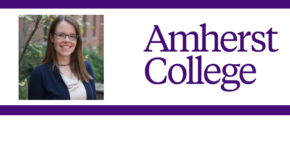Category: Child Psychology
-

Scott Allison, University of Richmond – Mothers as Heroes
Need to find a hero? Looks to moms. Scott Allison, professor of psychology at the University of Richmond, explores the four reasons for this. Scott Allison has authored numerous books, including Heroes and Heroic Leadership. He is Professor of Psychology at the University of Richmond where he has published extensively on heroism and leadership. His…
-

Yolanda Leyva, University of Texas at El Paso – Uncaged Art Provides a Voice to Detained Migrant Children
On University of Texas at El Paso Week: We’ve seen the effects of family separation at the southern border. Yolanda Chavez Leyva, associate professor of history, discusses how an art project is giving former caged children a chance to speak. Dr. Yolanda Chávez Leyva is a Chicana historian and writer who was born and raised…
-

Sarah Mountz, University at Albany – Challenges of Transgender and Gender Expansive Youth in Foster Care
Foster care can be tough. Especially for transgender and gender expansive youth. Sarah Mountz, assistant professor in school of social welfare at the University at Albany, details some of the extra challenges they face. Sarah Mountz’ research focuses on the experiences of LGBTQ youth in child welfare and juvenile justice systems, and among homeless youth…
-

Larisa Heiphetz, Columbia University – How Children and Adults Think About Religion
Do children and adults think of religion in the same way? Larisa Heiphetz, assistant professor of psychology at Columbia University, looks into this question. Larisa Heiphetz is an assistant professor in the Department of Psychology at Columbia University. Her research focuses on how children and adults think about their social worlds, with one line of…
-

Stephanie Jones, Harvard University – Early Childhood Care
Early childhood care is vital. Stephanie Jones, professor in early childhood development at Harvard University, looks into how to study it to gain more perspective. Stephanie Jones’ research, anchored in prevention science, focuses on the effects of poverty and exposure to violence on children and youth’s social, emotional, and behavioral development. Over the last ten…
-

Jennifer Harman, Colorado State University – Parental Alienation
Parental alienation can have long term consequences. Jennifer Harman, associate professor of psychology at Colorado State University, explores how greater awareness of this form of family violence can lead to better outcomes. Jennifer Jill Harman, Ph.D. received her doctorate in Social Psychology from the University of Connecticut in 2005, and specializes in the study of…
-

Carrie Palmquist, Amherst College – Differences in Snap Judgments Between Children and Adults
On Amherst College Week: Do kids react differently to faces than adults? Carrie Palmquist, assistant professor of psychology, explores this question. Carrie Palmquist is an assistant professor of psychology at Amherst College. She received her BA in psychology and linguistics from the College of William and Mary and her PhD in developmental psychology from the…
-

Tal-Chen Rabinowitch, University of Washington – The Power of Being in Sync
Get in sync. Tal-Chen Rabinowitch, postdoctoral fellow at the Institute for Learning & Brain Sciences at the University of Washington, explains why being in sync helps children be more cooperative. Tal-Chen Rabinowitch is a postdoctoral fellow at the Institute for Learning & Brain Sciences, University of Washington. Her research examines the connections between music, synchrony…
-

Vanessa LoBue, Rutgers University – The Importance of Face Time for Children
Do babies also like to look at good looking people? Vanessa LoBue, assistant professor of psychology at Rutgers University, explores infant’s preferences. Dr. LoBue is interested in the development of infants and young children in multiple domains, including emotional, cognitive, and perceptual. She received her B.S. at Carnegie Mellon University where she worked as an…

